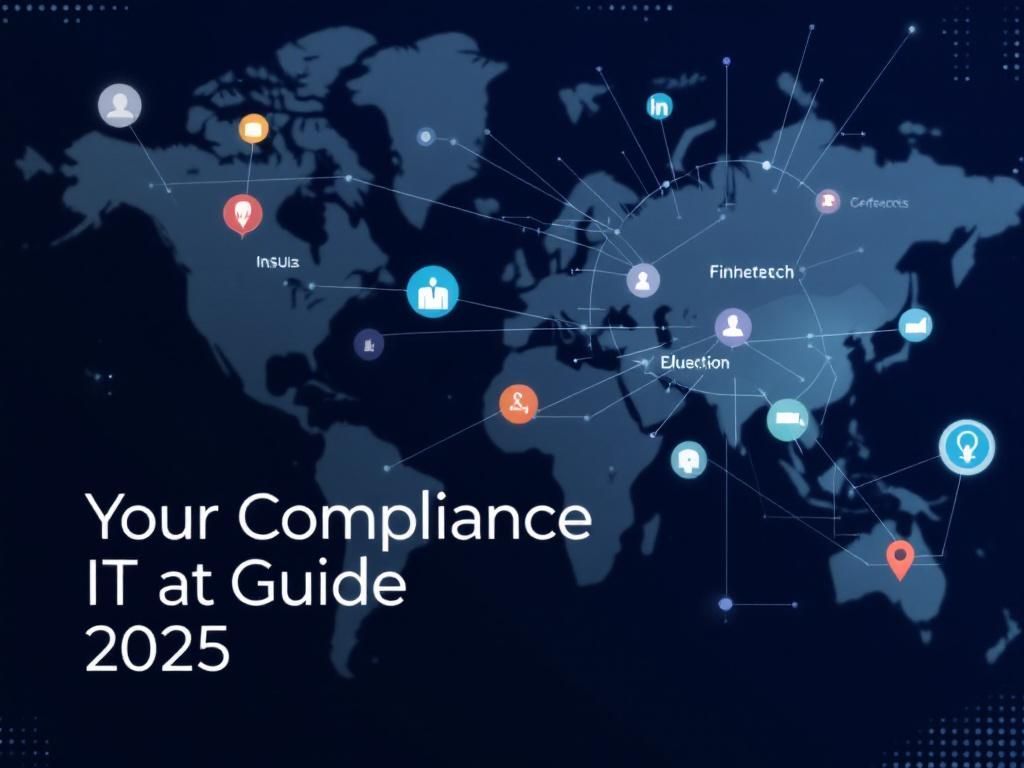FinTech Startups: Your Essential Compliance IT Guide for 2025
Discover the essential compliance IT strategies for FinTech startups in 2025 to ensure regulatory success and sustainable growth.

The financial technology (FinTech) sector has rapidly evolved, driven by innovation and the need for compliance amid increasing regulations. As we look towards 2025, understanding the compliance landscape is crucial for any emerging FinTech startup. With the intersection of technology and finance, compliance isn’t just a checkbox—it’s foundational to a startup’s success and growth.
Navigating the complex waters of compliance in the FinTech arena is crucial for startups aiming to thrive in 2025. This essential guide will equip you with the knowledge and tools necessary to address compliance challenges effectively. For inspiration on your branding, discover unique 3D logo examples that can set your startup apart.
Table of Contents
The Importance of Compliance in FinTech
Compliance in FinTech is not merely about adhering to laws. It encompasses maintaining trust with customers, ensuring data protection, and facilitating seamless operations. For tech-savvy entrepreneurs, the understanding of compliance can significantly differentiate their product in a crowded market. Here are some critical reasons why compliance is essential:
- Consumer Trust: Building a reliable brand means prioritizing data protection and privacy.
- Legal Protection: Staying compliant helps avoid costly legal challenges and penalties.
- Market Access: Regulations often dictate the ability to operate in certain regions or offer specific services.
- Operational Efficiency: A strong compliance framework can streamline processes and reduce risks.
Key Compliance Regulations to Watch
As you develop your FinTech startup, familiarity with the following regulations is essential:
1. General Data Protection Regulation (GDPR)
Applicable across the EU, GDPR emphasizes data protection and privacy. Understanding these regulations is vital for any business handling personal data of EU citizens. Key aspects include:
- Right to access and rectify data
- Data breach notifications within 72 hours
- Strict penalties for non-compliance
2. Anti-Money Laundering (AML)
AML regulations require financial institutions to monitor for, detect, and report suspicious activity. Startups must implement robust KYC (Know Your Customer) protocols, which involve:
- Verifying customer identities
- Monitoring transactions for unusual patterns
- Maintaining records for regulatory audits
3. Payment Services Directive 2 (PSD2)
This EU regulation aims to increase competition in the payment space while ensuring consumer protection. Key implications for FinTech startups include:
- Mandatory strong customer authentication (SCA)
- Open banking requirements, allowing third-party providers access to bank data
- Greater transparency in payment services
Establishing a Compliance Framework
A compliance framework is essential for navigating the complex regulatory landscape. Below are crucial steps in establishing an effective compliance framework:
1. Understanding Your Regulatory Environment
Identifying the specific regulations relevant to your operations is the first step. This may involve:
- Consulting with legal experts
- Keeping abreast of regulatory changes
- Engaging with industry associations for insights
2. Risk Assessment
Performing a comprehensive risk assessment helps identify areas where compliance may be at risk. Considerations include:
| Risk Category | Potential Impact | Mitigation Strategies |
|---|---|---|
| Data Breach | Loss of customer trust, fines | Implementing encryption, access controls |
| Non-compliance with AML | Legal penalties, operational delays | Regular training, updated KYC procedures |
| Payment Fraud | Financial loss, reputational damage | Fraud detection tools, customer education |
3. Implementing Technology Solutions
Modern compliance management often involves leveraging technology to enhance efficiency and accuracy. Consider the following tools:
- Compliance Management Software: Automates compliance processes, tracks changes in regulation, and maintains documentation.
- Data Protection Tools: Solutions that help manage customer data securely, with encryption and access controls.
- Monitoring and Reporting Tools: Real-time transaction monitoring for AML compliance and reporting capabilities.
Building a Culture of Compliance
A successful compliance framework extends beyond software and regulations; it requires a culture of compliance within the organization. Here are strategies to foster this culture:
1. Leadership Commitment
Executive leadership must prioritize compliance and allocate necessary resources. This commitment sets the tone for the entire organization.
2. Staff Training and Awareness
Regular compliance training ensures that all employees understand their roles in maintaining compliance. Effective training programs should include:
- Updates on regulations
- Scenario-based training exercises
- Clear reporting mechanisms for compliance issues
3. Continuous Monitoring and Improvement
Compliance is not a one-time effort. Regular audits and reviews of compliance processes help identify areas for improvement. Establish key performance indicators (KPIs) to monitor compliance effectiveness over time:
- Number of compliance incidents reported
- Employee training completion rates
- Timeliness of regulatory reporting
Conclusion
For FinTech startups, navigating the regulatory landscape is both a challenge and an opportunity. By prioritizing compliance through a structured framework, technology solutions, and a culture of awareness, startups can position themselves for success in a competitive market. As we approach 2025, those who embrace compliance as a core aspect of their business strategy will be better equipped to thrive in the dynamic FinTech ecosystem.
FAQ
What are the key compliance regulations for FinTech startups in 2025?
In 2025, FinTech startups must adhere to regulations such as GDPR, PSD2, and AML/KYC requirements to ensure data protection and financial security.
How can FinTech startups ensure they stay compliant with changing regulations?
FinTech startups can stay compliant by implementing robust compliance management systems, regularly updating their policies, and investing in legal consultations to keep up with regulatory changes.
What role does technology play in compliance for FinTech startups?
Technology plays a crucial role in automating compliance processes, enhancing data security, and ensuring real-time monitoring of transactions, which helps FinTech startups maintain regulatory adherence.
What are the common challenges FinTech startups face regarding compliance?
Common challenges include navigating complex regulations, managing data privacy concerns, and ensuring robust cybersecurity measures to protect sensitive financial information.
How can FinTech startups effectively train their staff on compliance issues?
FinTech startups can effectively train their staff by providing regular workshops, online courses, and access to compliance resources to ensure everyone is knowledgeable about current regulations and best practices.
What are the benefits of prioritizing compliance for FinTech startups?
Prioritizing compliance helps FinTech startups build trust with customers, avoid costly fines, and create a strong reputation in the financial industry, ultimately leading to long-term success.








